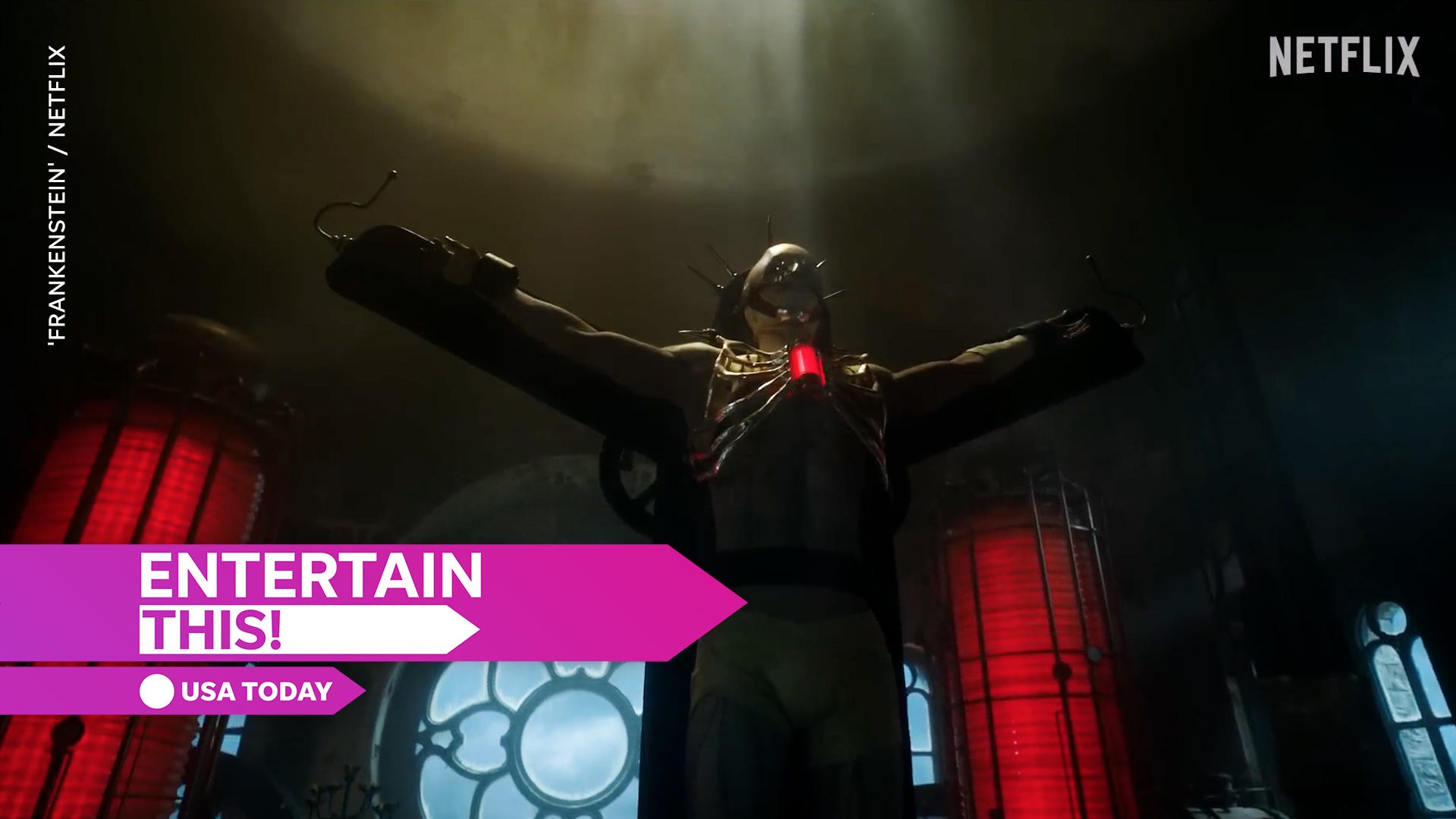
3 movies you must see this fall to include Emma Stone in ‘Bugonia’
Brian Truitt breaks down 3 movies you must see this fall to include The football horror film “Him” and the dark sci-fi drama ‘Bugonia’
TORONTO – Victor Frankenstein might be the guy playing God, but it was Jacob Elordi who had a holy experience becoming the Creature in “Frankenstein.”
Oscar-winning director Guillermo del Toro’s adaptation (in theaters Oct. 17, streaming Nov. 7 on Netflix) of Mary Shelley’s 1818 Gothic masterwork casts Oscar Isaac as the egotistical title scientist and Elordi as his patchwork creation. At a post-premiere Q&A at Toronto Film Festival, Elordi said it was “everything” to embrace that transformation into a new version of an iconic figure.
“I couldn’t possibly have played the character without that,” said the 28-year-old Australian, whose 6-foot-5 frame helped with the Creature’s monstrous proportions. “From the moment I sat in the (makeup) chair in the morning as me, that 10-hour process was what was necessary to be able to step into that world.
“Guillermo had described it to me when we first spoke, he said I needed to take the sacrament. It needed to be biblical and from the soul.”
“Frankenstein” is told from two perspectives: There’s Victor’s tale of how he wants to create life and the extreme things he does to electrify his Creature into existence, but also the Creature tells his story of what happened after that. Ultimately, it all leads to a needed confrontation between father and son.
Victor’s own father is obsessed with legacy and perfection and mistreats his boy, and that cycle continues with Victor and the Creature. Isaac pointed out that del Toro departed from Shelley’s prose, where Victor has “quite a doting father.” And in the movie, Victor “becomes blind” to the unfortunate patterns developing and the Creature is essentially a re-creation of his abused self.
“The Creature, he doesn’t even see him as a son,” Isaac says of Victor, who del Toro likens to a Byronic rock star. “He sees him as just an extension of his triumph or his failure. It allows him to treat him with such cruelty because (he’s) treating himself that way.”
In tackling “Frankenstein,” del Toro was very much influenced by Shelley, Lord Byron and others in the Romantic movement in the way he explores innocence and emotion, especially with Elordi’s Creature.
“They basically were punks. They were really, really iconoclastic and brutal. They broke all the rules of society and they revolutionized literature because it was emotion,” the director said.
He recalled that Lord Byron used to say, “If there’s no other emotion, shock them into feeling.” And del Toro believes we’re back there again as a culture.
“Emotion is the new punk,” the filmmaker concluded. “We are afraid of showing it. What is really tragic, we’re afraid of seeing emotion. We are in such a state of separation between us and within ourselves that emotion seems ridiculously big. And the only thing that’s going to save us is to have empathy and emotion.”
